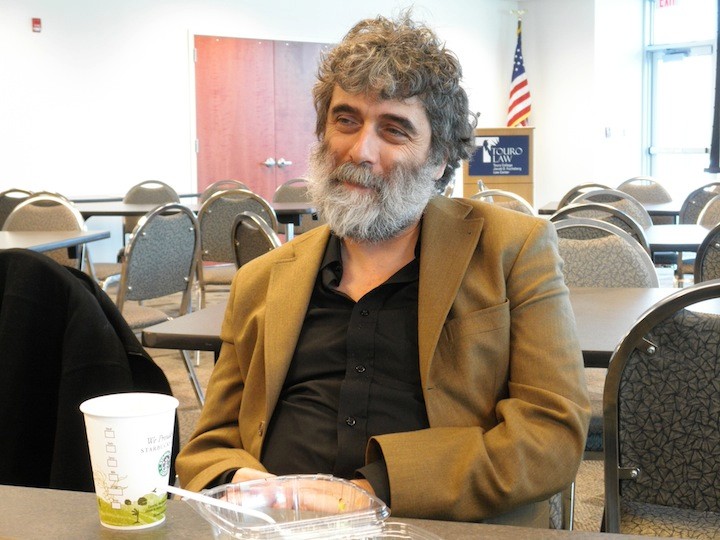Still Illegal
The settlements according to Gershom Gorenberg
With his wild hair, bushy beard and American background, journalist and author Gershom Gorenberg could be mistaken for a West Bank settler. He has written numerous news stories and books on the territories.
“Israel needed greater territorial width, but as Levi Eshkol said, with the dowry came the bride. The bride was the Palestinian people,” said Gorenberg, quoting the Israeli Prime Minister at that time. “But this was not the Israeli goal, it was an accidental empire from an accidental war.”
Gorenberg, who opposes settlements, spoke on their disputed legality at Touro Law School on Feb. 10, invited by the school’s Jewish Programs Committee.
“I heard him speak a couple of years ago and it was informative,” said Eileen Kaufman, who teaches constitutional law and tort law. “There are a host of human rights and legal issues involved in this.”
Kaufman picked up Gorenberg’s book “Accidental Empire,” published in 2006, on the background and growth of the settler movement. The book connects the hilltop outposts to the kibbutzim of British Palestine, where claims to land were established with “facts on the ground.”
“Where you settled is what you got. If the border got in your way, you move it,” said Gorenberg, describing kibbutzim that influenced the design of borders for the future Jewish state.
In his career as a reporter and author, Gorenberg dug up documents from the Six Day War demonstrating an unclear government policy towards its newly acquired territories.
“In the lack of an agreed policy, things started to happen because politics isn’t static,” said Gorenberg. He explains that peering across the vanished border, young secular kibbutzniks wanted to continue an earlier generation’s legacy of settling the land, and religious Zionists were attracted to locations mentioned in the Torah.
“When Levi Eshkol decided to rebuild Kfar Etzion, he went to Theodore Meron, the top expert in the Israeli government on international law,” said Gorenberg. In a secret memo, Meron argued that reestablishing the pre-1948 West Bank community was in violation of the Fourth Geneva Convention.
“When I interviewed him in 2000, he said it was not difficult to write, it was clear in international law,” said Gorenberg.






